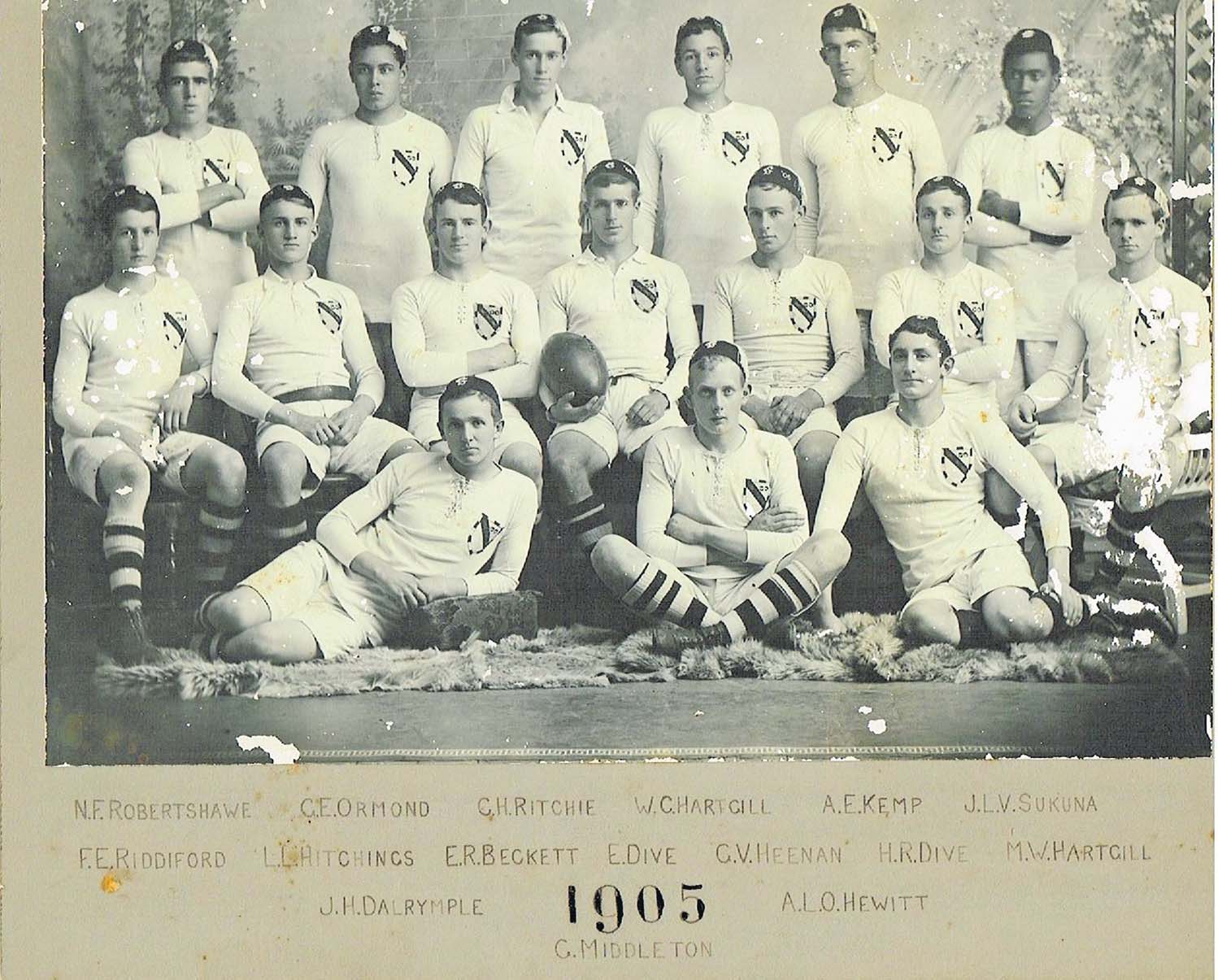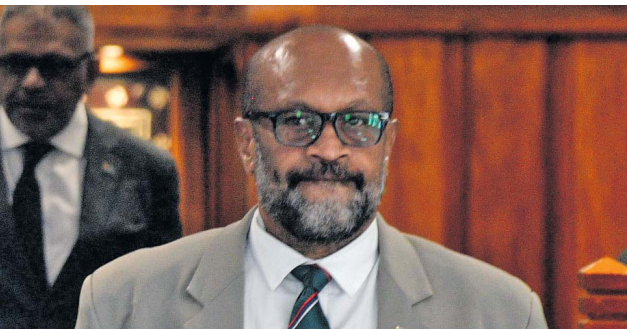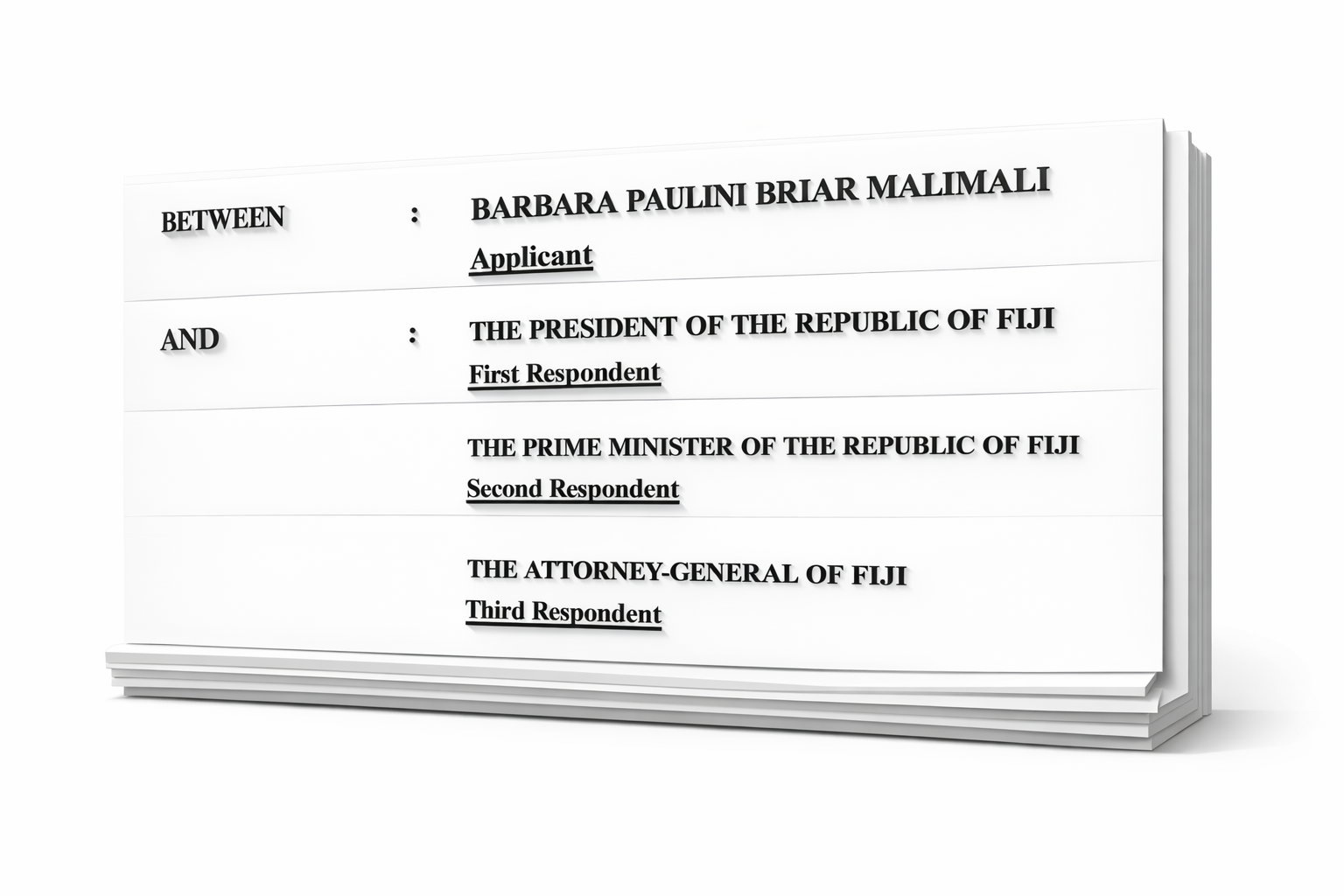It is years since you last heard from me; but I am still in the land of the living and so is Lala who suffers, however, from asthma,” a man wrote to an old acquaintance in 1947.
The man who received this letter was Captain Frank McGrath, who had taught at the Wanganui Collegiate School (WCS) in New Zealand for about 40 years. The man who wrote it was one Ratu Sir Josefa Lalabalavu Vanayaliyali Sukuna.
“Epeli Ganilau died of pneumonia in 1932,” he continued. “The only Old Boy here in Suva now, excluding myself, is young Tarte who could not have left School very long ago and who is now a clerk in this office, the Secretariat.”
“I was in New Zealand last year towards the end of July for three or four days, but had no opportunity of paying you a call; it was, how ever, end of term and the school was probably shut up.”
The school in mention, of course, being the Wanganui Collegiate School, where Ratu Sukuna had studied from 1903 to 1906 under McGrath’s tutelage.
According to the WCS School Museum and Archives, Issue 64 of the Collegian from April 1904 listed Ratu Sukuna as being placed 2nd in Latin in the Remove Form at end of his first year at the school. He also placed 2nd in both Euclid and in Science.
But destined to be Fiji’s first university graduate, the young Ratu excelled in more than just the classroom. He engaged himself with debates, listed as the school’s Parliamentary Union, every year from 1904 to the end of his schooling in 1906.
But the pitch called to him as much as the classroom and he made his mark there too. The teenager played both cricket and rugby in his first year. He continued playing cricket until his graduation, being listed as a good player several times.
Rugby, he returned to in his third year. In Issue 68 of Collegian, in August of 1905, Ratu Sukuna is listed as being in “the 1st XV Rugby team playing as Wing Forward (flanker) weighing 10 St 6 lbs” (about 66 kilograms).
For a match against Kaierau Rugby Club that year, the match reports note Kaierau were “getting the ball from the scrum, but smart work by Sukuna prevented their half from getting the ball away.”
The 1905 player reports, listing R. J. V. Sukuna as wing forward describe him as “a clever player who can throw out a ball well, but is too slow in getting to his position on the line-out. Gets around on to his opposing half smartly.”
The young man’s collegiate cricket career received a similar report, the notes on cricket players saying that “J . L. V. SUKUNA has not proved himself to be a successful batsman, playing, as before, with far too much theory and not being able to put it into practice.”
“As a medium paced bowler, however, has improved and did very well, getting 27 wickets for 10 runs apiece in the first half of the season.”
While these were still respectable reports, perhaps the young Ratu Sukuna’s attentions had become primarily focused on his studies, driven by a hunger to prove himself.
At the end of 1906 he passed his matriculation exams and was ready to further his studies in New Zealand, but due to a lack of funds, an education hinderance familiar to many to this day, he was forced instead to return home.
In 1907 he joined the Fiji civil service as a class 5 clerk and his proficiency in English propelled his career forward with admirable speed.
But Ratu Sukuna’s thirst for knowledge had not been quenched yet. This was not the first speed bump his education had hit, and it would not be the last that he would overcome.
His father, Ratu Joni Madraiwiwi had always been a staunch supporter of his son’s educational journey.
It had been Ratu Madraiwiwi that had approached Fiji’s first Indian school, Wairuku Indian School in Ra, when Ratu Sukuna had been a young boy, and had even approached a graduate of Cambridge University to be a private tutor for him; a path that allowed him to later attend the Wanganui Collegiate School.
And around 1912, it would be Ratu Madraiwiwi to come to his son’s aid again. He spoke with colonial Governor, Sir Francis Henry May about the possibility of Ratu Sukuna continuing his studies abroad owing to the results of his matriculation exams through the Wanganui Collegiate School.
Sir Francis was reportedly able to persuade the Colonial Secretary in London to allow Ratu Sukuna to take a one year leave of absence to study history at Wadham College, Oxford, in 1913.
His education would once again be interrupted by issues out of his control. World War I broke out a year into Ratu Sukuna’s studies in Oxford.
The young man expressed his desire to join the efforts, but was rejected by the British Army due to his race. Not one to let a single hiccup stop him from his plans, he instead joined the French Foreign legion, putting his education on hold once more.
Three years and several injuries later, the war veteran would finally return to Oxford and graduate with a Degree in History in 1918, officially becoming the first Fijian with a university Degree.
He would, of course, go on to attain many more firsts for Fiji, his legacy continuing to be celebrated to this day.
When reading his seemingly endless list of achievements and looking up at grand statues, it is hard to imagine the great Ratu Sukuna as once having been a little boy at a school in Ra or a young man on campus in Oxford.
But his legacy, as anyone’s, continues in these small, preserved memories, in these snapshots of his life, as he too had once remembered them.
“My recollections of Wanganui are still very bright despite the passage of so many years,” Ratu Sukuna had written in his letter to Captain Frank McGrath.
And the school too, has not forgotten him.
When asked for comment, the WCS School Museum and Archives immediately collected and presented the information about his school days contained in this article, sharing in the collective memories of all Fijians celebrating Ratu Sir Lala Sukuna Day this weekend.






